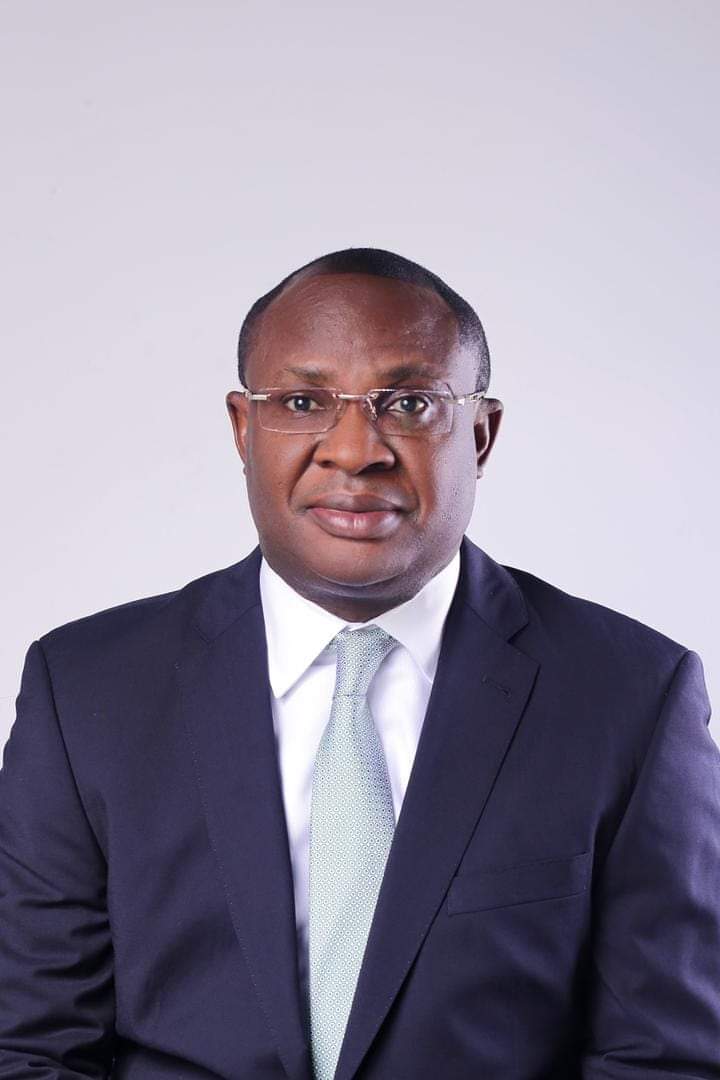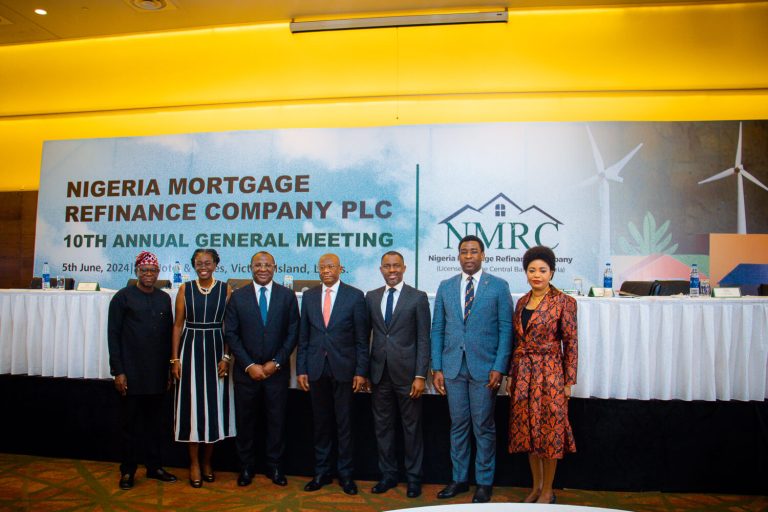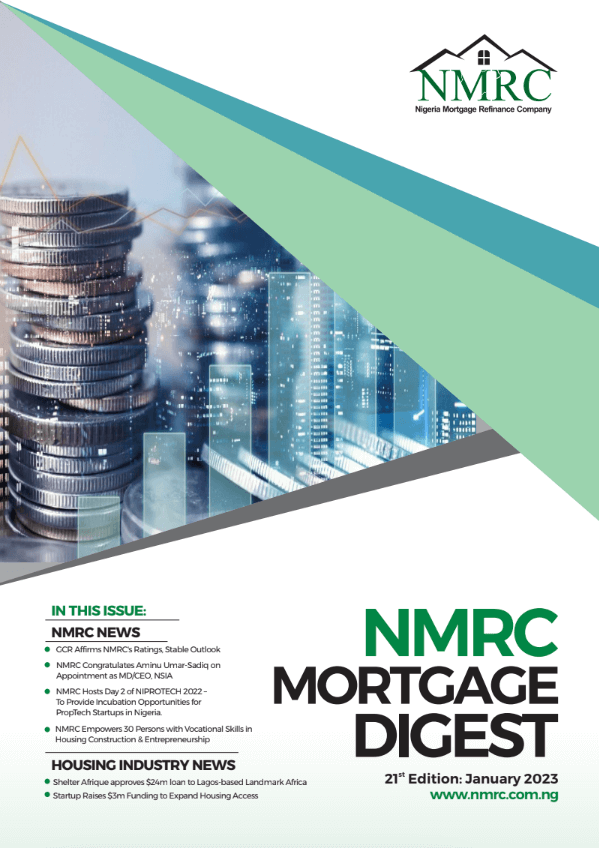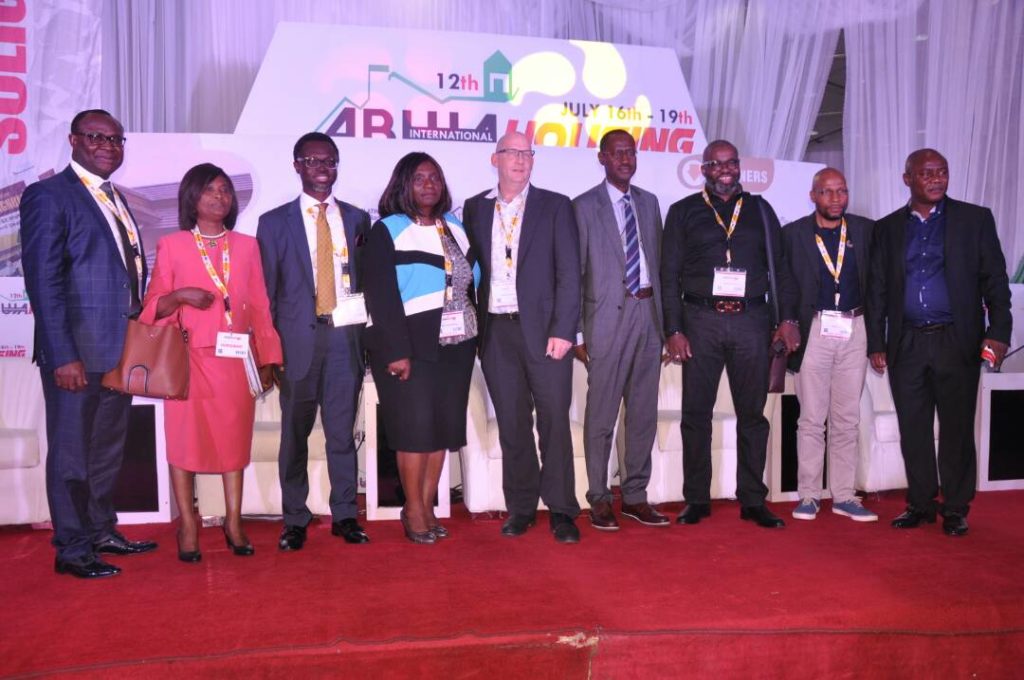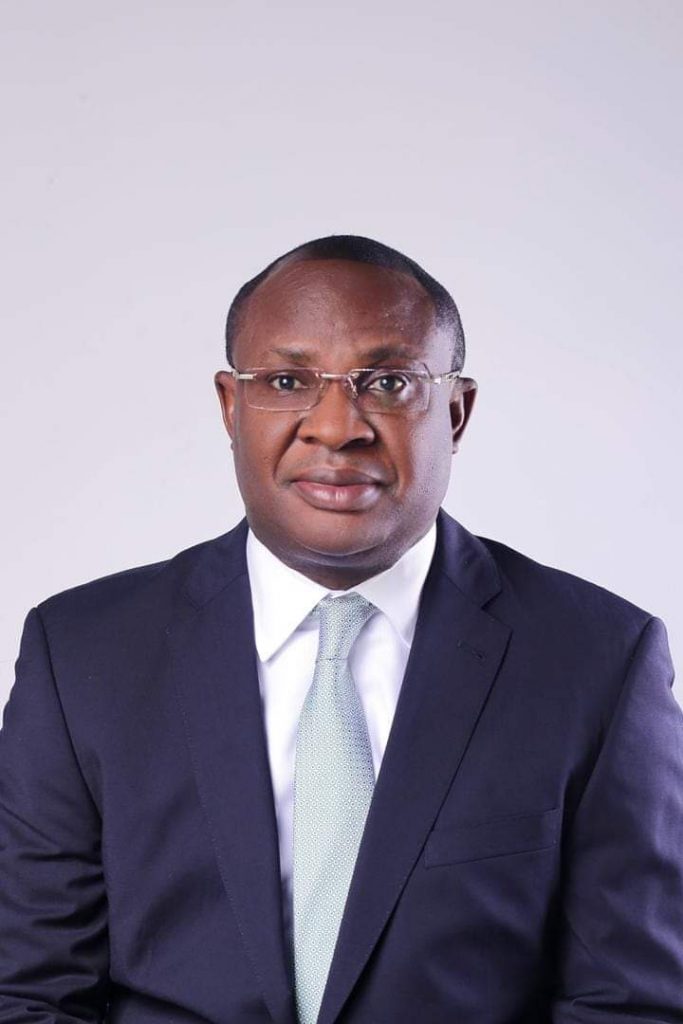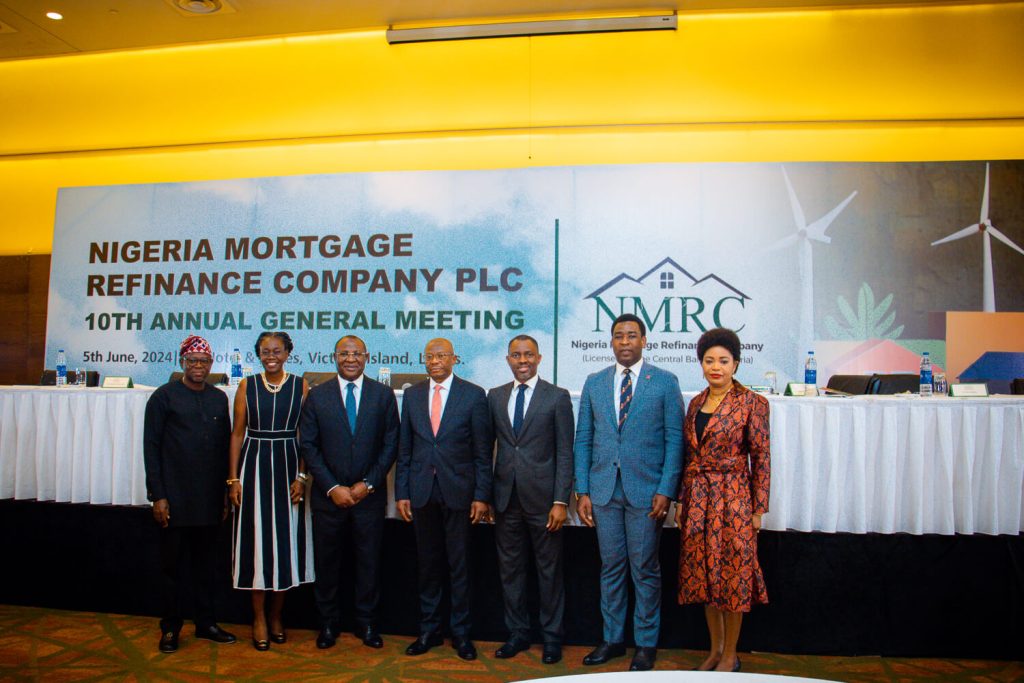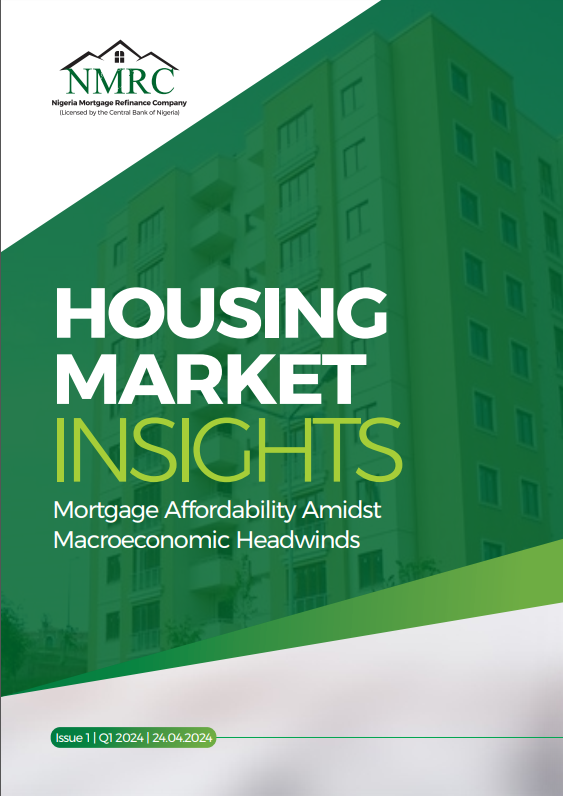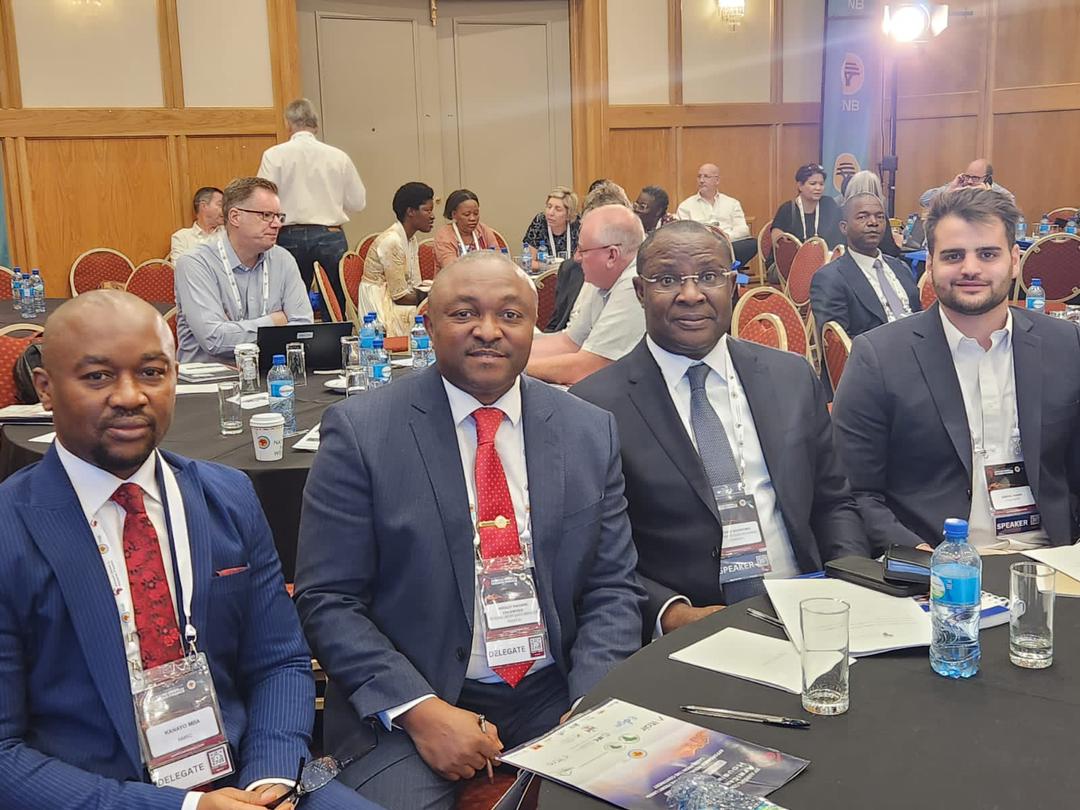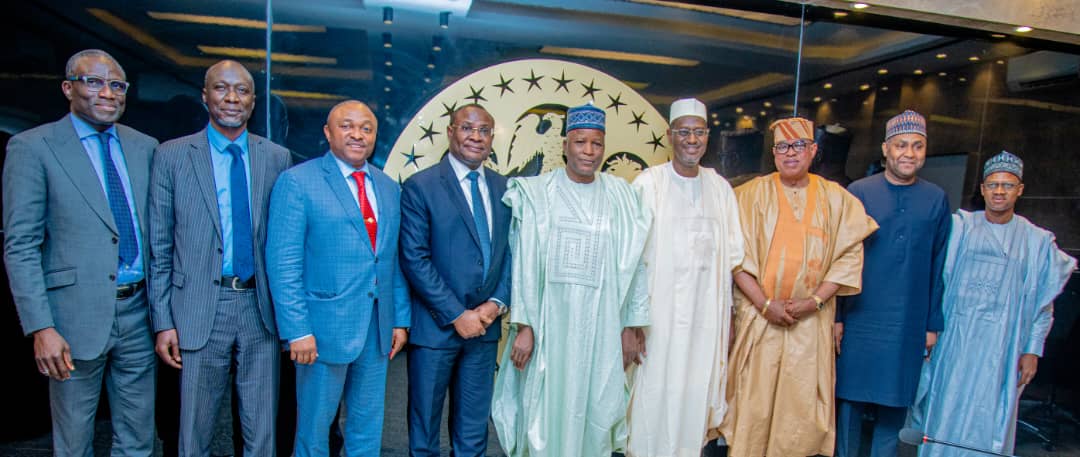NMRC JOINS LOCAL & INTERNATIONAL HOUSING LEADERS TO CHART A MORE IMPACTFUL PATH FOR NIGERIA’S HOUSING & MORTGAGE MARKETS
The Nigerian Mortgage Refinance Company (NMRC) last week joined a rich array of local and international housing leaders, government policy makers and industry stakeholders at the 12th Abuja International Housing Show to discuss, share experiences and practical ideas on Driving Growth & Sustainability in Nigeria’s Housing & Mortgage Markets – Improving Structures and Policies for Impact. The event held from July 16th to 19th at the International Conference Center (ICC), Abuja.
The NMRC team to the event was led by the Managing Director/Chief Executive, Mr. Kehinde Ogundimu and the Executive Director for Policy, Strategy, Partnerships and Business Development, Dr. Chii Akporji both of whom were speakers/panelists at several of the sessions of the Conference. NMRC also had a very prominent booth at the Show, which was highly commended by participants for visibility and overall ambience.
NMRC organized one of the key sessions of the event focused on approaches to enabling robust mortgage market & financial inclusion through underwriting standards, especially the recently published uniform underwriting standards for the informal sector. Moderated by Dr. Chii, the session witnessed insightful exchange of experiences by a mix of local and international panel of housing experts, including. Kehinde Ogundimu, Arc. Ahmed Dangiwa, MD/CEO, FMBN, and Mr. Adeniyi Akinlusi, President, MBAN. Others included David Gardner, CAHF, South Africa, Mr. Sam Odia, President Millard Fuller Foundation and a representative of Alhaji. Umaru Ibrahim, MD/CEO, NDIC.
Highlights of the panel discussion were as follows:
- The new uniform underwriting standards for the informal sector a major initiative of the NMRC in collaboration with other industry stakeholders such as the CBN, MBAN, NDIC and FMBN is transformational in that it will for the first time ever bring into the mortgage and financial net the huge informal sector of the Nigerian economy which has been estimated to account for about 60 % of Nigeria’s GDP.
- The sheer size of the informal sector, representing over 80% of the Nigerian population presents a huge potential for growth of the mortgage market.
- De risking the market is critical to a profitable and robust mortgage market. Initiatives such as the UUS, model mortgage and foreclosure bill are critical to achieving a robust mortgage market that attracts investments and they signal the progress that is being made in the industry.
- The new standards remains a living document that can be improved upon based on perspectives of key industry stakeholders and the informal sector operators themselves.
- Data integrity in the market is critical to attainment of the objectives of the UUS for the informal sector.
- The work to make credit available to those who do not have a regular source of income will be difficult and costly in the first instance. But after they are financially included and made to have bank accounts, it will become easier and cheaper to track and monitor their credit worthiness.
- NMRC recently raised N11billion from the capital market and will commence refinancing of loans provided to the informal sector by partner mortgage lenders after it has been on their books for a period of six months.
- FMBN has an existing Cooperative Loan window that caters to the informal sector. The bank has registered 1,010 cooperatives with a total membership of over 23,000 members that it services. It has disbursed about N632m from last year till date and delivered about 131 housing units.
- It is important to look for innovative ways to reduce the interest rates. This may include government subsidies etc. The current rate of over 20%, where after every 5 years you pay for the house without owning it, is not proper.
- The Center for Affordable Housing Finance (CAHF) welcomes the initiative and sees the introduction of the UUS for the informal sector as a potential game changer if implemented right.
- The UUS now places the onus on the financial institutions to start reviewing how they do business. Especially, in respect of a new credit scoring system that is going to be required at the retail level to make the initiative work.
- Nigeria needs to consider looking to India and some institutions in southern Africa, and South American countries that have amazing innovative new approaches to credit scoring e.g. matching credit ratings of particular professions rather than income.
- The UUS presents an opportunity to start looking at proprietary standards for credit scoring to take them forward.
- It is important for stakeholders to go beyond the provision for refinancing purchase of housing and start looking also at providing construction loans to people who have property but no financing.
- UUS presents an opportunity for stakeholders to reconsider the inclination to think about property for occupancy or living and start thinking about property for business. This is because in the informal sector, many people use their own property as the baseline of business.
- It is important for industry stakeholders to adopt an eco-system approach in finding innovative solutions to the issues that may come up in the course of implementing the UUS for the informal sector.
- What is going to make the standards work in practicality is going to be more learnings, more data from the sector generally and how all stakeholders are learning together on how to make the sector work.
Other sessions of the Abuja Housing Show discussed very important housing industry topics, such as “Unveiling Trends in Housing Finance & Mortgage Market Regulation,” “Alleviating Poverty through Sustainable Housing Development and Finance Systems,” “Benefits of a Robust and Effective Mortgage Guarantee Program in Driving Increased Access to Long Term, Low-Cost Housing Finance and Home Ownership in Nigeria,” and “Managing the Unintended Negative Consequences of the 1978 Land Use Act on the Nigerian Housing Sector.”
Some key speakers at these sessions include Mrs. Agnes Tokunbo Martins, Director Banking Supervision, Central Bank of Nigeria (CBN), Arc. Ahmed Musa Dangiwa, MD/CEO Federal Mortgage Bank of Nigeria (FMBN), Mr. Adeniyi Akinlusi, President Mortgage Bank Association of Nigeria and MD/CEO TrustBond Mortgage Bank Plc, Sonnie Ayere amongst several others. Dr. Xing Quan Zhang, Senior Advisor at UN-HABITAT, United Nations and and David Gardner, a housing finance economist from the Centre for Affordable Housing Finance based in Johannesburg. added international perspectives to the discussions.
Overall, the experts, listed inadequate finance, high cost of fund and building materials, poor land administration, lack of creativity in architectural design and difficulty in accessing land as knotty issues militating against affordable housing delivery. They also agreed that in spite of the challenges, the mortgage industry has witnessed several groundbreaking milestones that signal hope for the future. These include the building of institutions such as the NMRC, Mortgage Warehouse Funding Limited, Family Home Funds amongst others.
The gathering also noted the gradual and strategic efforts being made by the CBN along with other industry partners such as NMRC, MBAN, FMBN and NDIC to fix perennial constraints that have hobbled the growth of the mortgage market. This include the introduction of the formal and informal underwriting standards, the advocacy for the adoption of the model mortgage and foreclosure law, the planned establishment of the Nigeria Mortgage Guarantee Company as well as the consolidation of data on the sector.
Regarding the Land Use Act, the consensus was for industry stakeholders to work together around it since amending it has proven to be so difficult. It was agreed that the foreclosure bill as designed in many ways tackles the unintended consequences of the bill and that all stakeholders must seek for ways to get state government to support and push for the passage of the law as Kaduna and Lagos have already done to reap the benefits.
Some of the VIPs that graced the annual housing event, reputed to be the largest housing and construction sector stakeholder platform in the country, included the Minister of State for Power, Works & Housing, Suleiman Zarma Hassan, Hon. Freda Prempeh, Deputy Minister of Works & Housing, Republic of Ghana, Amma Pepple, former Minister, Land, Housing and Urban Development and Senator Sanusi Daggash.
See images from the event below.




